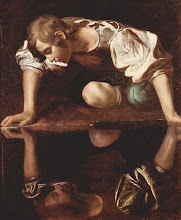
For some reason the Punic Wars seem to have been popping up rather a lot just recently. They naturally form the background to some of the action in Steven Saylor's
Roma, which I am currently reading, though most of the military action in the wars takes place off stage.
(public domain image of Hannibal as a child swearing eternal hatred of Rome, from the Comic History of Rome, via wiki commons)I recently got round to listening to Dan Carlin's series of
three podcasts on the Punic Wars (scroll down to find them). His forte is trying to evoke a sense of what it was like living through these events, rather than exactly what happened when.
I've also been listening to what is shaping up to be an
excellent series of lectures on Hannibal from
Patrick Hunt of Stanford University. The first lecture on the Carthaginian background to Hannibal's career was wide-ranging and informative with some interesting ideas. The second lecture, which was on the 1st Punic War, was equally informative, though there were times I wished I had some maps in front of me.
Brendan McGinley and Mario Vargas are respectively writing and illustrating
an
online comic book version of the story of Hannibal. It's still a work in progress, and so far Hannibal has only just reached the Alps and is dealing with the tribes before he crosses the mountains. The generally humorous style reminds me a bit of Asterix. I do wish, however, that they could fit a whole page onto the screen. Even in full screen view one still has to scroll up and down to see the top or bottom inch or so, which is fine for one page but can get a bit tedious.
This week's topic in Melvyn Bragg's series "In Our Time" from BBC Radio 4 is
The Destruction of Carthage and it will be available in downloadable format until 19th February, after which it will still be available in the programme's archives, but you will have to listen over an internet connection. One of the contributors to this programme was Mary Beard, who has
blogged about the experience.










